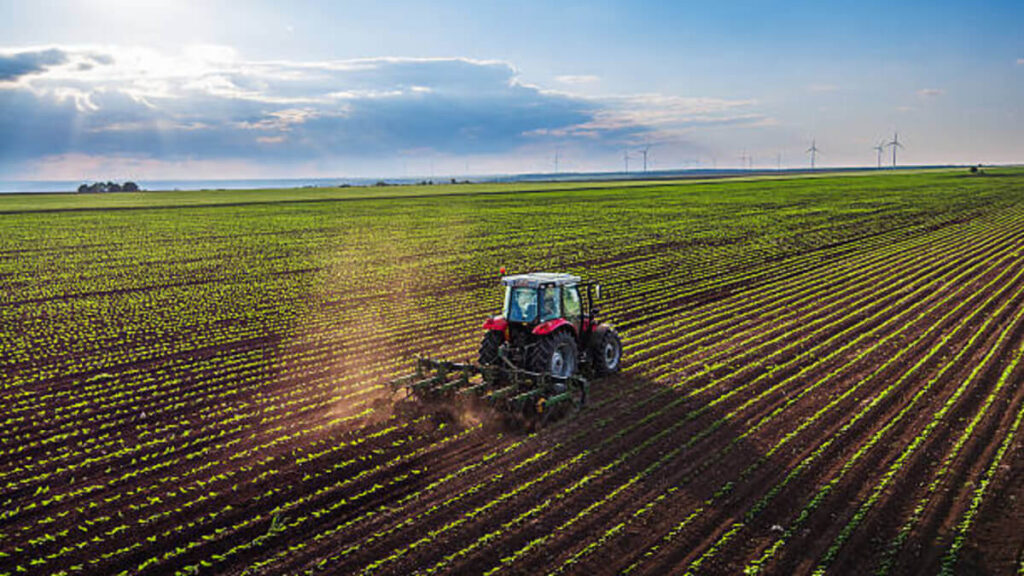Agriculture is an important sector in Nigeria and is a major contributor to the country’s economy. It employs a significant portion of the population and provides a major source of livelihood for many people.
The sector is also a major source of foreign exchange earnings for the country through the export of agricultural products. In addition to its economic contributions, agriculture also plays a vital role in food security in Nigeria, as it is a major producer of staple crops such as rice, cassava, maize, and yams.
In fact, agriculture is the largest employer in Nigeria, providing employment for about 70% of the country’s population. The sector is also a major source of foreign exchange for the country, as Nigeria is a major exporter of agricultural products such as cocoa, rubber, and oil palm.
Also, check out Medicinal Plants and their Uses.
Agriculture is also important for food security in Nigeria, as it provides the majority of the country’s food supply.
The government of Nigeria has recognized the importance of agriculture to the country’s development and has made efforts to support and improve the sector through policies and programs aimed at increasing productivity and promoting the growth of the agriculture industry.
Importance of Agriculture in Nigeria
Some of the Importance of Agriculture in Nigeria include:
Food Security
Agriculture plays a critical role in food security in Nigeria. The sector is a major source of the country’s food supply, providing the majority of the staple foods consumed by the population.
In addition, agriculture provides employment and income for a large percentage of the population, which can improve their access to food.
However, Nigeria still faces challenges in ensuring food security for its population. Poor infrastructure, such as inadequate roads and storage facilities, can limit the distribution of food to all parts of the country.
In addition, the reliance on rain-fed agriculture makes Nigeria vulnerable to the impacts of climate change, which can result in crop failures and food shortages.
To address these challenges, the government of Nigeria has implemented various initiatives to improve food security in the country. These include investing in infrastructure, supporting smallholder farmers, and promoting sustainable agriculture practices.
By addressing these issues, the government hopes to increase the productivity of the agriculture sector and improve food security for all Nigerians.
Improved Nutrition
Improving nutrition is an important aspect of the role that agriculture plays in Nigeria. Agriculture is a major source of the country’s food supply, and the quality and variety of the foods produced can have a significant impact on the nutritional status of the population.
There are several ways in which agriculture can contribute to improved nutrition in Nigeria. First, increasing the production of diverse and nutrient-rich crops, such as fruits, vegetables, and legumes, can help to improve the nutritional quality of the diet.
Second, investing in food processing and storage technologies can help to reduce post-harvest losses and improve the availability of nutritious foods.
Third, supporting smallholder farmers and improving their access to inputs, such as seeds, fertilizers, and training, can help to increase their productivity and improve their ability to grow nutritious foods.
By addressing these issues, the agriculture sector in Nigeria can play a key role in improving the nutritional status of the population and contributing to the overall well-being of the country.
Poverty Alleviation
Agriculture is a vital sector for poverty reduction in Nigeria. The sector is a major source of employment and income for a large percentage of the population, particularly in rural areas.
In addition, the agriculture sector has the potential to contribute to economic growth and development, which can lead to a reduction in poverty.
There are several ways in which agriculture can contribute to poverty reduction in Nigeria. First, increasing agricultural productivity can lead to higher incomes for smallholder farmers, which can improve their living standards and reduce poverty.
Second, investing in infrastructure and support services, such as extension services, credit, and market access, can help to improve the competitiveness of the agriculture sector and increase the income of farmers and agribusinesses.
Third, promoting the growth of non-farm rural enterprises, such as processing, storage, and transport, can create additional income-earning opportunities in rural areas and contribute to poverty reduction.
Economy Growth and Development
There are several ways in which agriculture can contribute to economic growth and development in Nigeria. First, increasing agricultural productivity can lead to higher incomes for farmers and agribusinesses, which can stimulate economic growth.
Second, investing in infrastructure and support services, such as extension services, credit, and market access, can help to improve the competitiveness of the agriculture sector and increase its contribution to the economy.
Third, promoting the growth of non-farm rural enterprises, such as processing, storage, and transport, can create additional income-earning opportunities in rural areas and contribute to economic development.
Employment Generation
The sector employs a large percentage of the country’s labor force, particularly in rural areas, and is a key source of livelihood for many people. There are several ways in which agriculture can contribute to employment generation in Nigeria.
First, increasing agricultural productivity can lead to higher incomes for farmers and agribusinesses, which can stimulate the demand for labor.
Second, investing in infrastructure and support services, such as extension services, credit, and market access, can help to improve the competitiveness of the agriculture sector and create additional employment opportunities.
Third, promoting the growth of non-farm rural enterprises, such as processing, storage, and transport, can create additional income-earning opportunities in rural areas and contribute to employment generation.
Also, check out The Sexual and Health Benefits of Cloves.
Development of Infrastructure
Agriculture can play a role in the development of infrastructure in Nigeria. Infrastructure refers to the basic physical and organizational structures and facilities needed for the functioning of a society, such as roads, bridges, water systems, and communication networks.
There are several ways in which agriculture can contribute to the development of infrastructure in Nigeria. First, the expansion of the agriculture sector can generate additional economic activity and revenue, which can be used to fund the development of infrastructure.
Second, the growth of the agriculture sector can stimulate demand for infrastructure services, such as transportation and storage, which can drive infrastructure development.
Third, the development of infrastructure can improve the competitiveness of the agriculture sector by increasing access to markets and inputs, which can support the growth of the sector.
Reduction in Trade Deficit
The trade deficit refers to the situation in which a country imports more goods and services than it exports, resulting in a net outflow of foreign currency.
There are several ways in which agriculture can contribute to reducing the trade deficit in Nigeria. First, increasing agricultural productivity can lead to higher exports of agricultural products, which can help to reduce the trade deficit.
Nigeria is a major exporter of agricultural products, such as cocoa, rubber, and oil palm, and increasing the production of these and other products can help to increase the country’s export earnings.
Second, investing in infrastructure and support services, such as extension services, credit, and market access, can help to improve the competitiveness of the agriculture sector and increase exports.
Third, promoting the growth of non-farm rural enterprises, such as processing, storage, and transport, can create additional income-earning opportunities in rural areas and contribute to reducing the trade deficit.
Final Notes on Agriculture in Nigeria
Agriculture is a vital sector for the economic development and well-being of Nigeria. It is a major source of employment, income, and food for the country, and it plays a key role in addressing issues such as poverty, food insecurity, and malnutrition.
In addition, agriculture has the potential to contribute to economic growth and the development of infrastructure in the country.
To realize the full potential of the agriculture sector, it is important for the government of Nigeria to invest in infrastructure, support smallholder farmers, and promote sustainable agriculture practices.
By addressing these issues, the agriculture sector can play a crucial role in the development of Nigeria and the well-being of its population.
Before you go, check out Health Benefits of Garden Eggs.








Pingback: Popular Farm Tools and Equipment | EntsToday